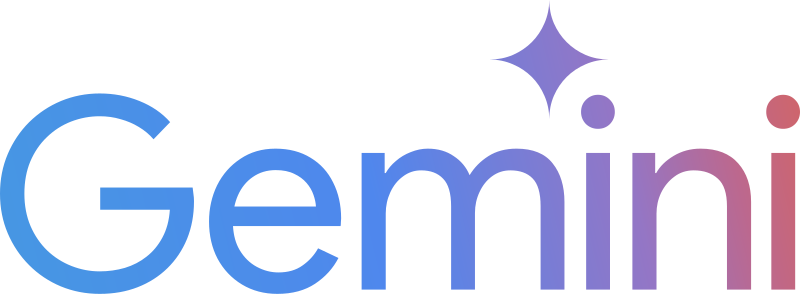The exchange provides a user-friendly interface designed for beginners while also offering advanced trading tools for experienced traders. Unlike many other platforms, Gemini prioritizes transparency, ensuring users have access to clear fee structures and robust security measures. This focus on reliability and compliance has made Gemini a preferred choice for those seeking a secure and professional trading environment.
In addition to its trading services, Gemini offers features such as staking, an interest-earning program through Gemini Earn, and its own stablecoin, Gemini Dollar (GUSD). These products expand the platform’s functionality beyond simple trading, allowing users to engage in various aspects of the crypto economy.
Despite its many advantages, Gemini does have some limitations, including higher fees compared to competitors and restrictions on users from certain countries. These aspects, along with trading features and security measures, will be explored in detail in the following sections.
Trading Conditions and Instruments
Gemini offers a diverse range of trading options, making it a suitable platform for both beginners and experienced traders. The exchange supports over 90 cryptocurrencies, including popular assets such as Bitcoin (BTC), Ethereum (ETH), Solana (SOL), and its own stablecoin, Gemini Dollar (GUSD). Users can trade these assets across multiple pairs, providing flexibility for different trading strategies.
To accommodate various trading styles, Gemini provides multiple order types, including:
- Market Orders – Execute trades instantly at the current market price.
- Limit Orders – Allow traders to set a specific price for buying or selling.
- Stop-Limit Orders – Help manage risk by triggering a trade once a specified price is reached.
- Recurring Buys – Enable automated purchases at scheduled intervals.
These options make Gemini a versatile platform, whether users are day traders looking for precision or long-term investors seeking automated accumulation strategies.
Fees and Commission Structure
Gemini’s fee structure is transparent but relatively higher compared to some competitors. The platform employs a maker-taker fee model, where fees vary based on 30-day trading volume. Below is an overview of Gemini’s trading fees:
| 30-Day Trading Volume (USD) | Maker Fee | Taker Fee |
| $0 – $10,000 | 0.40% | 0.40% |
| $10,000 – $50,000 | 0.30% | 0.35% |
| $50,000 – $100,000 | 0.25% | 0.30% |
| $100,000 – $1M | 0.15% | 0.25% |
| $1M – $10M | 0.10% | 0.15% |
| Over $10M | 0.03% | 0.05% |
In addition to trading fees, Gemini also charges deposit and withdrawal fees depending on the method used. Bank transfers and crypto deposits are typically free, while debit card purchases and wire withdrawals may incur additional charges.
Overall, Gemini’s trading environment is designed to cater to both casual and professional traders, offering a balance of security, trading flexibility, and regulatory compliance. However, its higher fees may be a drawback for users seeking a low-cost trading solution.
Security and Regulation
One of Gemini’s standout features is its strong focus on security and regulatory compliance. Unlike many other cryptocurrency exchanges, Gemini is a fully licensed and regulated platform, operating under the supervision of the New York State Department of Financial Services (NYDFS). This regulatory oversight ensures that Gemini follows strict financial and security standards, offering users greater confidence in the safety of their funds.
Security Measures
Gemini employs industry-leading security protocols to protect user assets and data. These measures include:
- Cold Storage for Digital Assets – The majority of user funds are stored in offline, air-gapped cold wallets to prevent unauthorized access.
- Two-Factor Authentication (2FA) – Users must verify logins with an additional authentication step via Google Authenticator or SMS.
- Withdrawal Whitelisting – Allows users to specify trusted wallet addresses, reducing the risk of unauthorized withdrawals.
- Insurance Coverage – Gemini’s digital asset holdings are insured against theft or hacking incidents.
- SOC 2 Type 2 Certification – The exchange has undergone independent audits to verify its security controls, making it one of the most secure platforms in the industry.
These security features make Gemini a preferred choice for investors who prioritize safety over lower trading fees.
Regulatory Compliance and Licensing
As a New York Trust Company, Gemini adheres to strict anti-money laundering (AML) and know-your-customer (KYC) regulations. This means that all users must complete identity verification before trading. The platform is also compliant with the Bank Secrecy Act (BSA) and follows Financial Action Task Force (FATF) guidelines to prevent illicit financial activities.
However, these regulatory requirements come with limitations. Gemini is not available in certain countries due to compliance restrictions. Users from regions such as Russia and several other post-Soviet states cannot access the platform, making it less accessible compared to offshore exchanges with looser regulatory frameworks.
Despite these restrictions, Gemini’s strong compliance record and commitment to security make it a top choice for traders looking for a highly regulated and trustworthy exchange.
Pros and Cons of Gemini
Like any cryptocurrency exchange, Gemini has its strengths and weaknesses. While it stands out for its security and regulatory compliance, some aspects—such as its fees and regional restrictions—may be less appealing to certain users.
Pros of Gemini
- High Security Standards – Gemini employs cold storage, two-factor authentication (2FA), and insurance coverage to protect user funds.
- Regulated and Trustworthy – As a New York Trust Company, Gemini is fully licensed and complies with strict financial regulations.
- User-Friendly Interface – The platform is designed to be accessible for beginners while also offering advanced features for experienced traders.
- Variety of Trading Options – Supports multiple order types, recurring buys, and staking through Gemini Earn.
- Insurance Protection – Gemini provides insurance coverage for digital assets stored on the platform.
- Wide Asset Selection – Supports over 90 cryptocurrencies, including major assets like Bitcoin (BTC) and Ethereum (ETH).
Despite these advantages, Gemini is not without its downsides.
Cons of Gemini
- Higher Trading Fees – Compared to competitors, Gemini’s trading fees are relatively expensive, especially for small-volume traders.
- Limited Regional Availability – Users from certain countries, including Russia and some other post-Soviet states, cannot access the platform.
- Strict KYC Requirements – Full identity verification is mandatory, which may deter users seeking greater privacy.
- No Margin Trading – Unlike some competitors, Gemini does not offer margin trading, limiting options for high-risk traders.
- Deposit and Withdrawal Fees – While bank transfers are free, debit card purchases and wire withdrawals can incur additional costs.
Gemini is a well-regulated and secure cryptocurrency exchange that appeals to traders who prioritize compliance, security, and transparency. Its strong regulatory backing, insurance coverage, and high-security measures make it one of the most trustworthy platforms in the industry. However, its higher fees and limited availability in certain regions may be deal-breakers for some users.
Ultimately, Gemini is best suited for individuals looking for a safe and regulated trading environment rather than those searching for the lowest fees or advanced trading features like margin trading. For those who value security and compliance, Gemini remains a strong choice in the crypto market.

